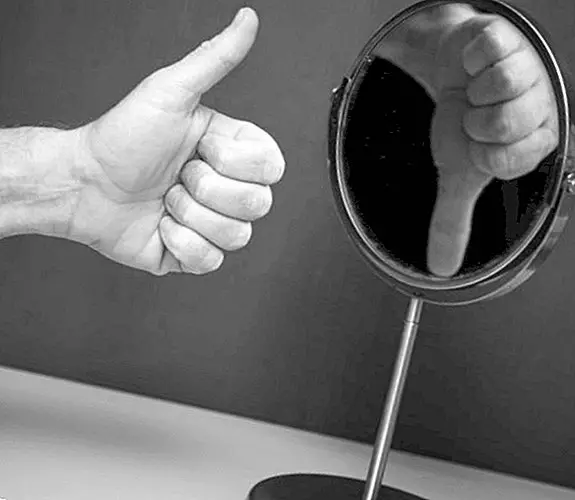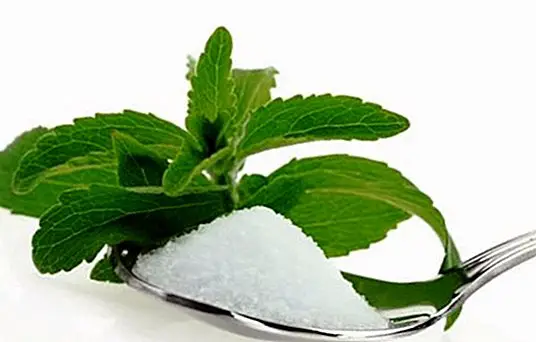Testicular pain
Unlike what happens with both the ovaries and particularly with ovarian pain (since they tend not to be organs with sensitivity, so that they do not actually cause pain), testicles they are very sensitive, which means that any injury or stroke, however minor or insignificant, can cause pain. As you surely know, the testes are the male gonads, which are of great importance in sexual development, and have two main functions: they are co-producers of sperm and sex hormones (mainly testosterone, responsible for regulating the development sex in men, the level of desire and sexual function itself).
We find them inside the scrotum, and consist of a pair of balls whose dimensions tend to be around 5 centimeters long by 3 centimeters wide. Although they have a fairly similar size, it is common for one testicle to hang a little more than the other.

Since the testicles are one of the most delicate areas of the body of man, They are extremely sensitive to both touch and pressure. Therefore, the scrotum has a very important function: to protect them not only from changes in temperature, but also from physical impacts.
Symptoms of testicular pain
The main symptom is feel discomfort in one or both testicles. This pain can radiate even to the lower part of the abdomen. Basically we can summarize the symptoms of testicular pain in the next section:
- Discomfort or pain in one or both testicles.
- Nausea and dizziness, as a result of pain.
- Pain that radiates to the lower part of the abdomen.
Causes of testicular pain
There are several causes that can cause the onset of testicular pain, some very common and habitual, and others not so much:
- Testicular injury.
- Testicular beat, usually in sports practice.
- Varicocele: dilated veins in the scrotum.
- Epididymitis: infection or inflammation of the spermatic ducts.
- Orchitis: infection or inflammation of the testicles.
- Testicular torsion: torsion of the testicles that causes the interruption of the blood supply.
- Spermatocele: cyst in the epididymis. It often contains dead sperm cells.
- Kidney stones: kidney pain extends to the scrotal area.
- Inguinal hernia: muscle defect in the groin, which affects the scrotum.
Although testicular cancer can cause pain, in most cases it is painless. Therefore it is always recommended to feel the testicles at least once a year, as a form of prevention. And in case you find a small ball or protuberance, go quickly to the urologist. If the testicular pain does not disappear after an hour or tends to be very strong, it is advisable to go to the emergency room or to your urologist.
Why does the testicle pain appear?
We must bear in mind that the testicles are not protected by muscles or bones, as it happens with other organs of our body. Therefore, they can suffer injuries, either when the man practices a sport or due to an accidental blow.
Although the light blows tend to be very painful, usually they do not leave any type of sequel, thanks to the spongy tissue from which the testicles are made able to absorb the blow.
It is also possible to feel nauseous or dizzy due to the pain felt by the blow or the impact, but usually the pain tends to disappear little by little, after an hour.
What to do to relieve the pain of testicles?
When the pain of the testicles is not urgent, since it has been caused by some minor injury (such as having given a slight blow) or by the accumulation of fluid, it may be interesting to know how to relieve the pain of testicles. The following basic tips can help you:
- Application of ice: applying a little ice on the scrotum helps to reduce inflammation and reduce pain. Of course, you must be careful not to burn yourself.
- Hot baths: they are equally useful to reduce and calm the inflammation.
- Analgesics: although from this blog we do not recommend self-medication, certain over-the-counter analgesics such as paracetamol or ibuprofen can be helpful.
If the testicular pain does not disappear after an hour, or tends to be very strong, it is advisable to go to the emergency room or go to your urologist. The same happens if the testicular pain is abrupt and intense, which can be produced by an acute twisting of the testicle, which must be diagnosed -and solved- in the first six hours, since otherwise there is a risk that the patient loses the testicle because blood does not reach this organ.
How is the cause of testicular pain diagnosed?
If the pain does not go away and you go to a medical center, the specialist will first make a visual examination, followed by a palpation with your hand, which will allow examining the presence of possible suspicious lumps, and help to know which areas hurt more or less . This analysis also provides the possibility of discovering whether the pain comes from the testicles themselves, the scrotum, the penis, the abdomen or the groin.
Other tests and analyzes can also be performed:
- Urine and blood tests: they are useful to determine the presence or not of any viral or bacterial infection.
- Testicular ultrasound: it offers the possibility of evaluating if there are blood problems, anatomical anomalies, testicular rupture, inguinal hernias, tumors, accumulation of blood or pus.
- Testicular ultrasound: useful to evaluate if there is an epididymitis.
In addition, there are other tests that are somewhat more complex but equally useful:
- Gammagraphy: helps to know how the blood circulates through the testis ducts.
- Nuclear scan: helps to know if there is testicular torsion.
Image | Guzmán Lozano This article is published for informational purposes only. It can not and should not replace the consultation with a Physician. We advise you to consult your Trusted Doctor.



